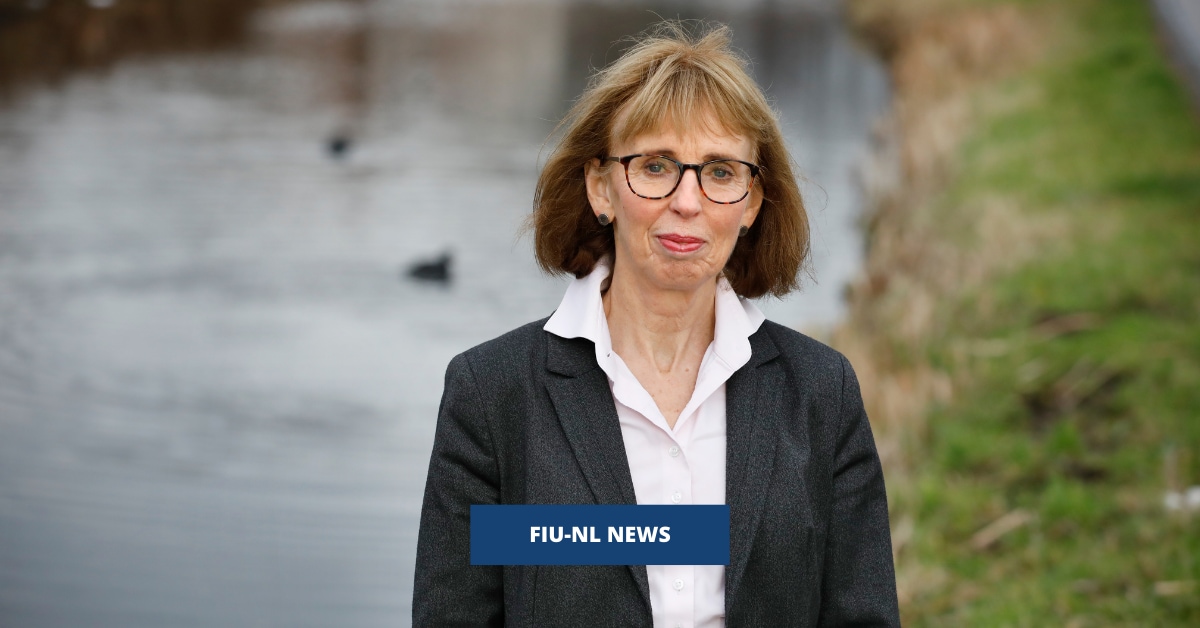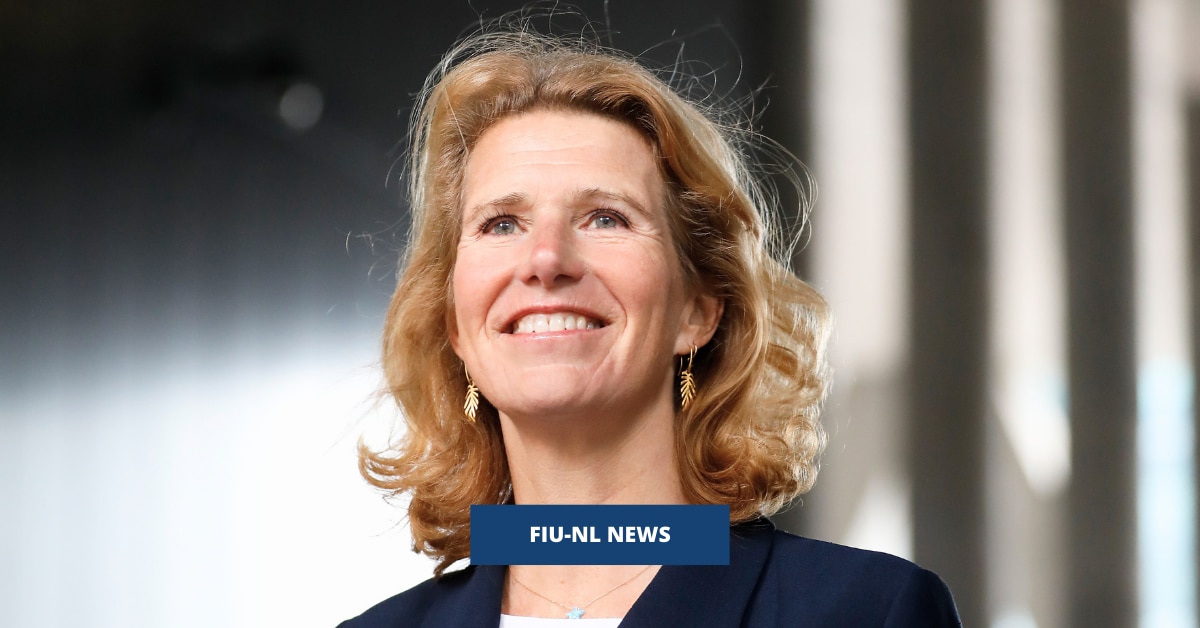Oekraïne

Via deze nieuwsbrief wil FIU-Nederland de meldingsplichtige instellingen informeren over de gevolgen van het conflict in Oekraïne in relatie tot de Wwft en over de mogelijke gevolgen die dit kan hebben voor uw organisatie.
FIU-Nederland
De Financial Intelligence Unit – Nederland (FIU-Nederland) is in de Wwft aangewezen als de autoriteit waar ongebruikelijke transacties dienen te worden gemeld door meldingsplichtige instellingen. De FIU-Nederland analyseert deze meldingen en brengt transacties en geldstromen in kaart die in verband kunnen worden gebracht met witwassen en onderliggende delicten alsmede financieren van terrorisme. Ongebruikelijke transacties die na onderzoek door het hoofd van de FIU-Nederland verdacht zijn verklaard, worden ter beschikking gesteld aan de diverse (bijzondere) opsporingsdiensten en inlichtingen- en veiligheidsdiensten. De FIU-Nederland vervult daarmee een belangrijke rol in het voorkomen en opsporen van witwassen, onderliggende delicten en terrorismefinanciering.
Achtergrond
Zoals u waarschijnlijk heeft meegekregen in het nieuws is Rusland op 24 februari 2022 Oekraïne binnengevallen nadat de Russische president Poetin een ‘speciale militaire operatie’ in de Oekraïense Donbas-regio aankondigde. Deze invasie volgde na oplopende spanningen tegen de achtergrond van de conflictsituatie die is ontstaan sinds 2014 waarbij de Oekraïense president Janoekovitsj aftrad, Rusland de Krim annexeerde en er een oorlog ontstond in de Oost-Oekraïense Donbas-regio.
Sancties
Door deze situatie zijn door de EU nieuwe beperkende maatregelen getroffen met betrekking tot acties die de territoriale integriteit, soevereiniteit en onafhankelijkheid van Oekraïne ondermijnen of bedreigen. Deze recente sancties hebben betrekking op Rusland en Wit-Rusland en zijn o.a. gericht op de financiële dienstverlening aan bepaalde personen en organisaties, het invoeren van handelsrestricties op ijzer, staal, luxegoederen en het verbieden van het exporteren van wapens of zogenoemde dual-use goederen[1]. Dual-use goederen zijn producten, diensten of technologieën die gebruikt kunnen worden voor zowel civiele als militaire doeleinden.
Naast de recente sancties kunnen andere sancties voor uw instelling van toepassing zijn. Hierbij valt te denken aan reeds eerder gepubliceerde EU-sancties[2] of sancties in regio’s waar uw organisatie actief is of zaken mee doet, zoals OFAC-sancties in de VS[3] of sancties van het Verenigd Koninkrijk[4].
Bij het vaststellen van sanctie ‘hits’[5] en het onderzoek naar het omzeilen van sancties dient u te letten op de klantrelatie, een tegenpartij bij een (financiële) transactie, maar ook op familierelaties, stromanconstructies en ondernemingen binnen de zeggenschaps- en/of eigendomsstructuur van de gesanctioneerde.
Het is mogelijk dat een sanctie-hit ook leidt tot de veronderstelling dat er mogelijk sprake is van een ongebruikelijke transactie in de zin van de Wwft. In dat geval dient er onverwijld een melding gedaan te worden bij FIU-Nederland. Ook wanneer uw melding betrekking heeft op slechts enkele indicaties voor een sanctie hit en/of het omzeilen van sancties kan uw melding relevant zijn. Immers kan er door versnippering van dienstverlening een gefragmenteerd beeld zijn bij meerdere melders, waarbij het overkoepelende beeld duidelijk maakt dat er sprake is van zulke feiten.
AML/CFT-risico’s
FIU-Nederland heeft enkele risico’s geïdentificeerd in relatie tot het conflict in Oekraïne. Enerzijds betreffen dit risico’s met betrekking tot enkele activiteiten en anderzijds betreffen dit risico’s met betrekking tot bepaalde goederen. Geldstromen en andere financiële handelingen rondom deze activiteiten en goederen die in relatie staan tot (Wit-)Rusland en Oekraïne hebben een verhoogd AML/CFT-risico.
Activiteiten:
• Corruptie[6] (bij het omzeilen van sancties of het onttrekken van middelen uit (Wit-)Rusland)
• Fraude (met bijvoorbeeld hulpgelden)
• Virtuele valuta (als alternatief voor het traditionele bancaire systeem)
• Ondergronds bankieren (als alternatief voor het traditionele bancaire systeem)
• Verhullen van de UBO[7] (zeggenschap en/of bezit)
Goederen:
• Grondstoffen (olie, gas, steenkool, ertsen etc.)
• Luxe goederen (bijv. motorjachten, luxewagens en modeartikelen)
• Vastgoed
• Wapens
• Dual-use goederen voor militaire inzet
Vermeld #conflict2022
Om de gemelde transacties gemakkelijk uit ons systeem te kunnen filteren verzoeken wij u, wanneer u meldingen doet die verband houden met de hierboven besproken actualiteiten de term #conflict2022 in te vullen in het veld [Reden verdacht] of in de transactieomschrijving. Deze meldingen hebben hoge prioriteit bij FIU-Nederland.
Relevant news
-

FIU- the Netherlands congratulates its former head on her appointment to the AMLA Executive Board
On behalf of FIU- the Netherlands, we congratulate our former head, Hennie Verbeek-Kusters, on her appointment as a Member of the Executive Board of the Authority for Anti-Money Laundering and Countering the Financing of Terrorism (AMLA) in Frankfurt. This appointment marks an important step in strengthening European cooperation in the fight against financial crime.
-

Lisette Heerze appointed acting head of FIU The Netherlands
As of February 1, Lisette Heerze has been appointed acting head of FIU-Netherlands for an indefinite period. This temporary appointment ensures that the leadership of the FIU will continue without interruption now that the current head, Hennie Verbeek-Kusters, is taking up a position elsewhere.
-

FIU-Netherlands signed up to the Statement of Principles
Today, FIU-Netherlands signed up to the Statement of Principles for a multilateral approach to combating illegal trade in wild animals.
Knowledge base
Trader’s report leads to seizure of millions in cryptocurrency
Company under scrutiny on suspicion of large-scale money laundering
Report of cash sports car purchase leads to money laundering conviction
Large-scale fraud and money laundering via cryptocurrency
Frequently Asked Questions
-
Do you want to know whether FIU-the Netherlands has personal data about you and whether you can access it?
The answers to these questions can be found in articles of the General Data Protection Regulation, in the associated directives, and in the Police Data Act (Dutch acronym: Wpg) and Decree. But the bottom line is that you are not allowed to access this data with us. How is that?
All unusual transactions reported to us remain in our database for five years, as required by the Money Laundering and Terrorist Financing (Prevention) Act (Dutch acronym: Wwft). To give an impression of the size of this database, in 2022 we received over 1.8 million unusual transactions (UTRs). It is determined by law that the UTR-information we have, i.e. the unusual transactions and the associated personal data, fall under the classification State Secret – Secret, see Article 5 of the Government Information Security Decree – Special Information. Only authorized FIU employees have access to this information. Therefore, if a person asks us for access to his or her personal data, we are not allowed to provide it. After all, the information is state secret.
Unusual transactions are analyzed by FIU-the Netherlands to establish whether there are sufficient grounds to designate them suspicious. These transactions declared suspicious (STRs) may then be shared with the relevant intelligence, security and investigation services, such as the police and the fiscal intelligence and investigation service (Dutch acronym: FIOD). This is allowed since STRs are legally subject to the Wpg.
-
No, you must be registered as a separate reporting entity in each capacity.
If, for example, you are an estate agent and a valuer, then the capacity in which you make the report depends on the situation. In such cases, you need to have two registrations with FIU Netherlands: one as an estate agent and one as a valuer. If you come across an unusual transaction in your estate agency business, you report as an estate agent; if you encounter an unusual transaction when carrying out valuations, you report as a valuer.
-
Indicators of unusual transactions are listed in the 2018 Implementation Decree for the Money Laundering and Terrorist Financing (Prevention) Act (Wwft) (Uitvoeringsbesluit Wwft 2018 [in Dutch]). These indicators differ per reporting entity. The page on reporting groups gives an overview of the various indicators per reporting group. If in your view a transaction meets one or more of the indicators that apply to your reporting group, you must report that transaction to FIU-the Netherlands.
If you have questions about how to interpret a given indicator, you can ask your Wwft supervisory authority. This page shows which supervisory authority is responsible for your reporting group. This division of roles is addressed in more detail in the FAQ “What is the role of the Wwft supervisory authorities in relation to FIU Netherlands?’’.
-
Yes, you must report these unusual transactions to FIU-the Netherlands. This is required in line with one of the objective indicators set out in the Implementation Decree for the Money Laundering and Terrorist Financing (Prevention) Act (Wwft) (Uitvoeringsbesluit Wwft 2018): “It is logical that transactions reported to the police or the Public Prosecution Service in connection with money laundering or terrorist financing should also be reported to the Financial Intelligence Unit; after all, there is an assumption that these transactions may be related to money laundering or terrorist financing”.

